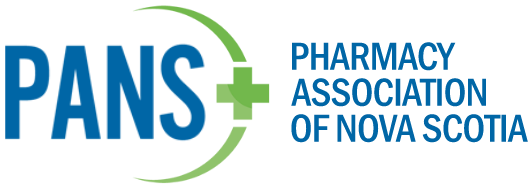Pharmacist and Pharmacy Professor Natalie Kennie-Kaulbach's first job as a pharmacist was on a Family Medicine Team at St. Michael's Hospital in Toronto. This was after the Nova Scotia native completed her pharmacy degree at Dalhousie University and a Doctor of Pharmacy at the University of Toronto. The experience working on the interdisciplinary team gave her valuable experience she could pass on to her students at Dalhousie's College of Pharmacy and the medical residents working at the Dalhousie Family Medical Clinics on Mumford Road and in Spryfield, while helping her patients have better health outcomes.
"Collaboration wasn't taught when I went to school," says Natalie. "I've learned everything the hard way."
Family was the deciding factor for Natalie when she considering a move back home to Nova Scotia. She wanted her children to be closer to their grandparents and to be able to enjoy the relaxed lifestyle of the province.
It was also a family member who first introduced Natalie to the pharmacy profession. She first developed an interest in pharmacy while working with her father at a small independent pharmacy co-located with a family medicine clinic he owned when she was a child. Subsequently, she developed an interest in teaching but still wanted to be able to work with patients one-on-one. A professor at Dalhousie was retiring from her clinical practice and this provided the perfect opportunity for Natalie to combine her professional interests while balancing her family life.
Natalie sees a mixed population of patients at Dalhousie Family Medical Clinics, most with chronic illnesses who are on multiple medications. Patients are most frequently referred to her by doctors at the family medical clinic so she can take a closer look at the patients' medications.
"Pharmacists have a unique lens, " says Natalie. "The way we analyze things is different from other health providers."
When meeting with a patient, Natalie gathers a complete medication history from the patient. She learns about which medications they are actually taking, how they take them, how they organize their medications, and if the medications are actually working for the patient.
Many patients have conditions that are not well managed for a number of reasons. They may not be taking their medications as required. They may not even understand why they are on the medication, which can also impact how a patient, or if a patient, takes the medication. Sometimes Natalie discovers that patients are on medications they do not need. Other times, they may be taking their medications incorrectly (wrong dosage, wrong time of day, with or without food, etc.). Having access to the patient’s medical chart has been valuable to more completely assess the patient’s medication regimen.
“I can trace the patient’s story of medication use from the family doctor, to the specialist, to hospital to the community pharmacy,” says Natalie.
Sometimes a patient may have a specific concern, like pain or depression, and Natalie is able to make recommendations to address these concerns and advises the doctors at the clinics when they are making prescribing decisions for their patients. This team-based approach is particularly helpful for complex cases.
Natalie is able to bring her real-life experiences into the classroom or, more specifically, the 'skills lab' at Dalhousie's College of Pharmacy. Under Natalie's tutelage, students learn patient interviewing techniques and the assessment aspects of patient care. She helps get them ready for the "real world" by bringing in things she is constantly learning from other health care providers at her collaborative practice.
Although there are many rewarding aspects to Natalie's practice, she is able to identify one that stands out amongst the others.
"The times that I've discovered something with a pharmacy lens that nobody had discovered."

